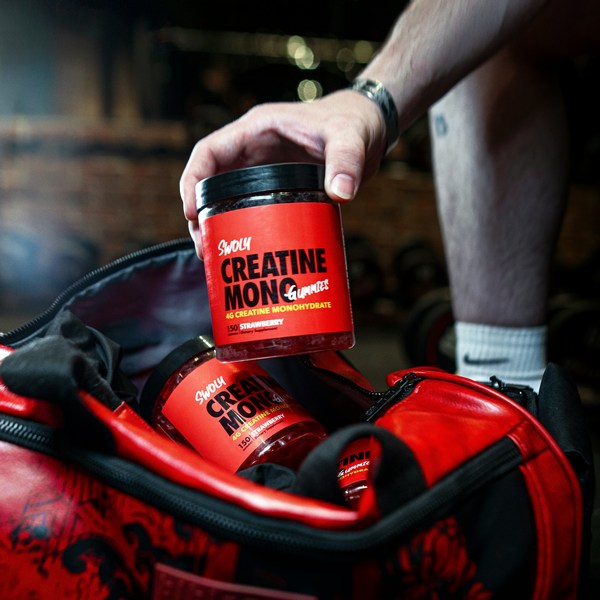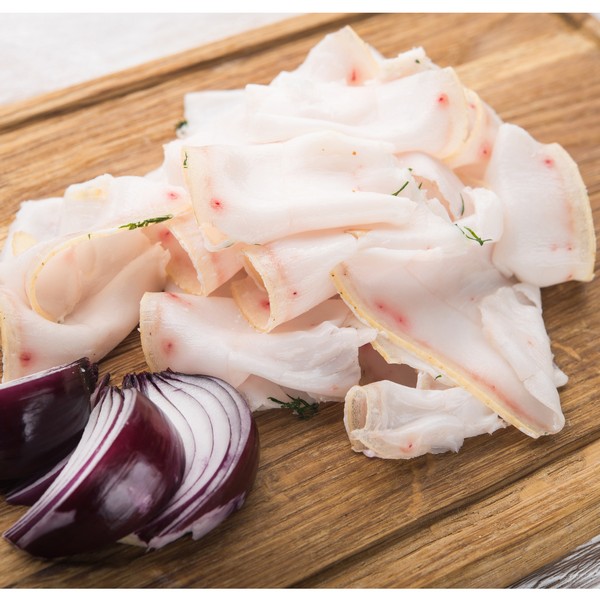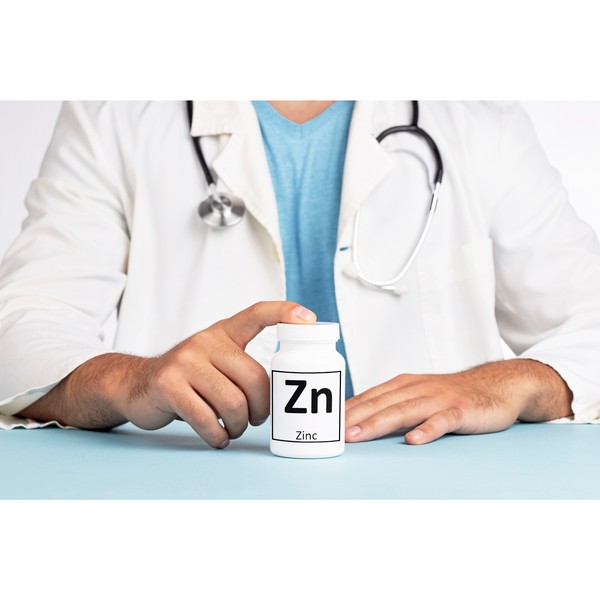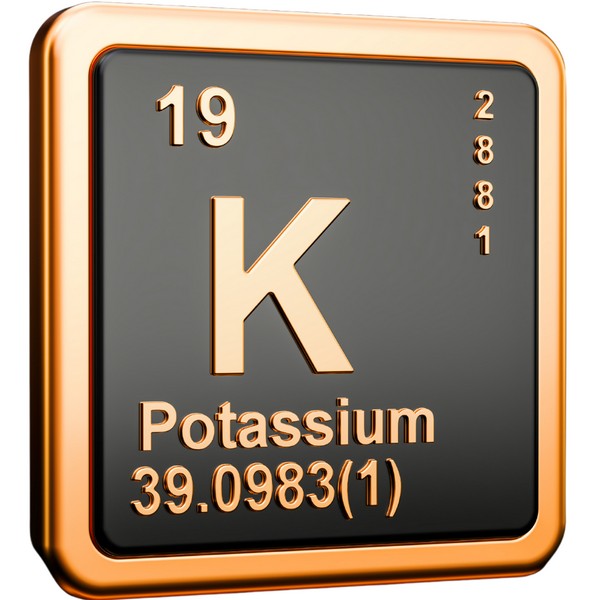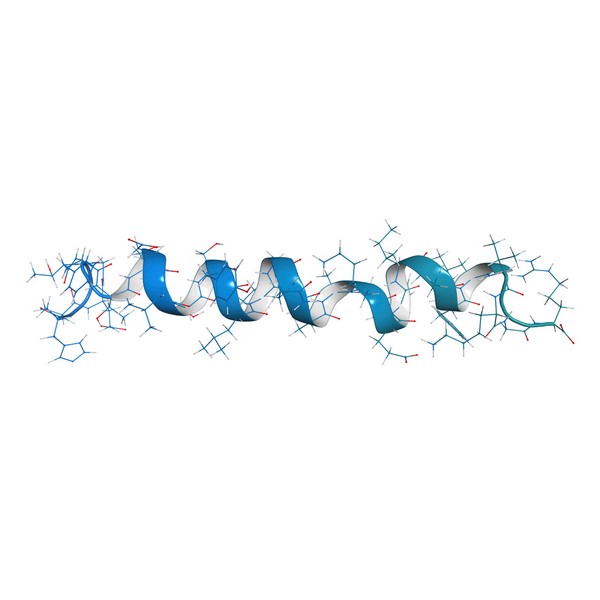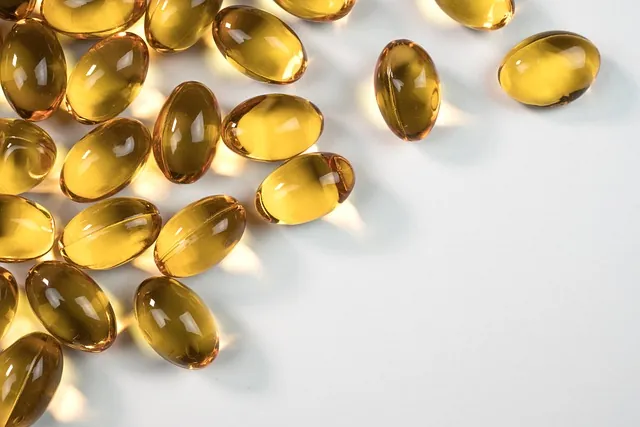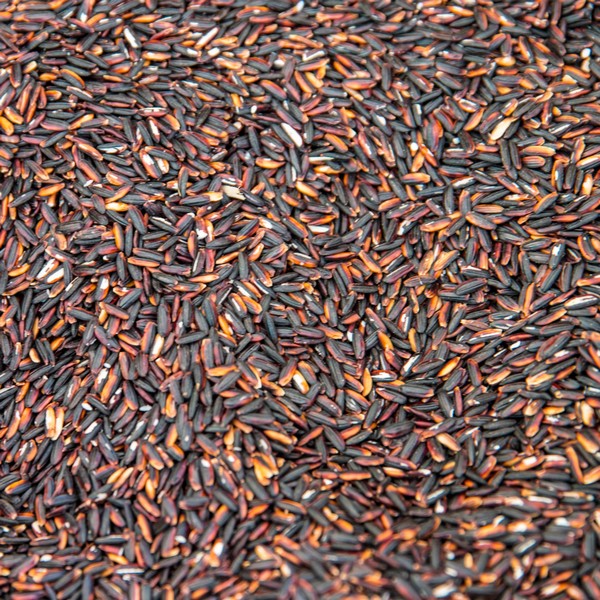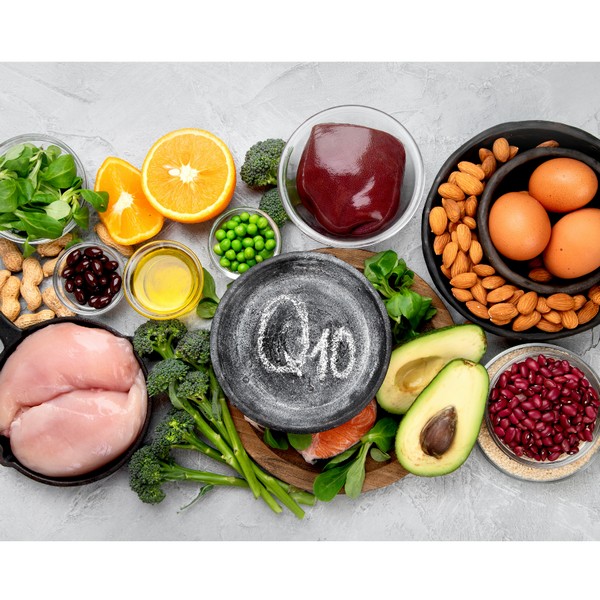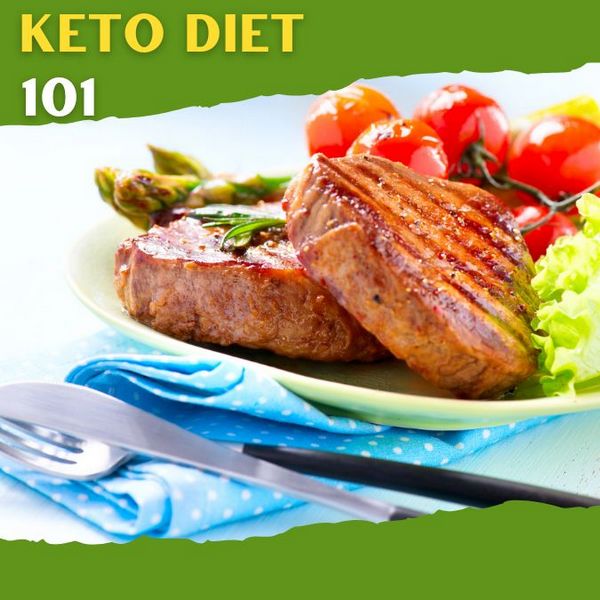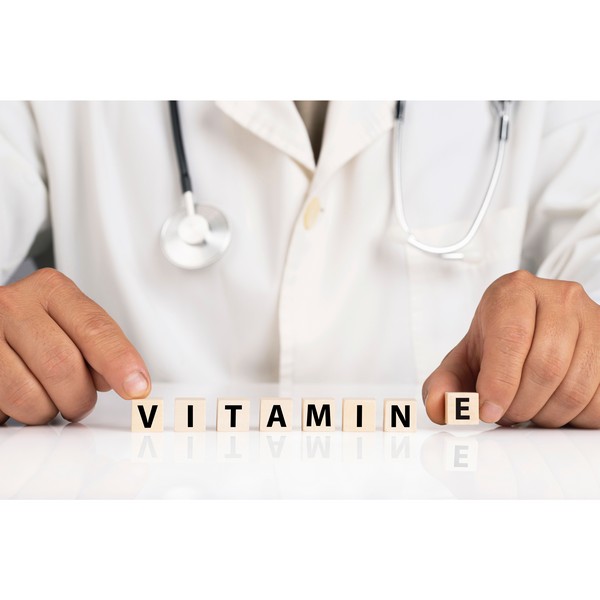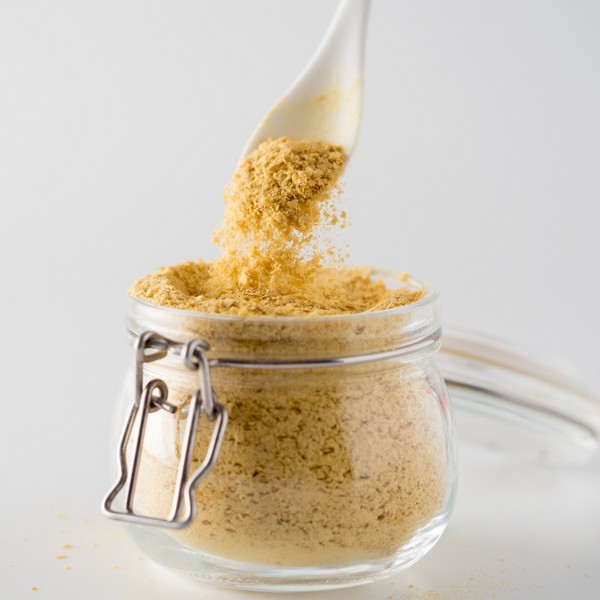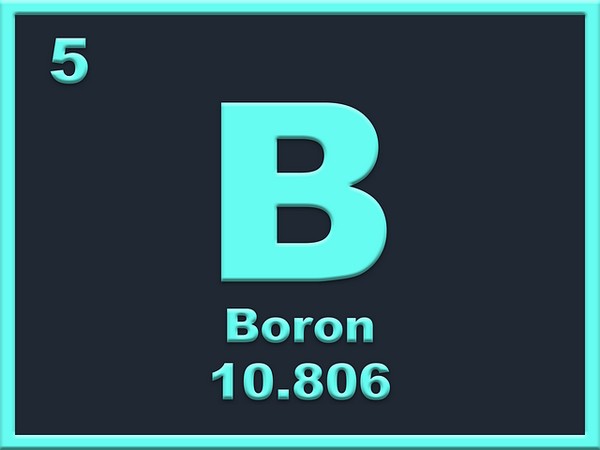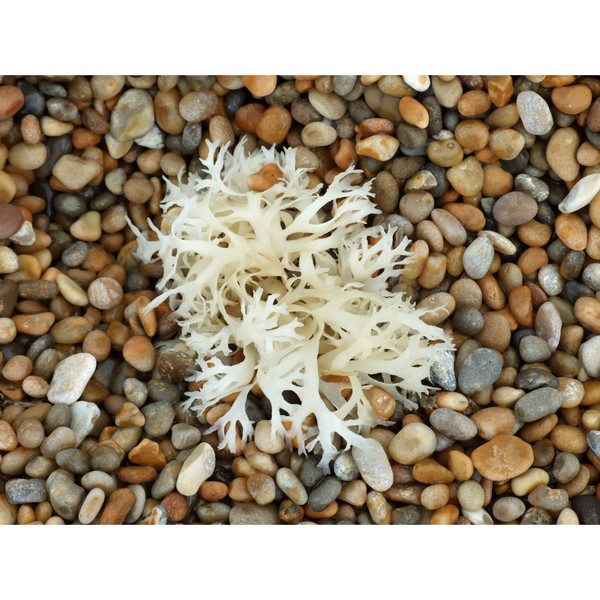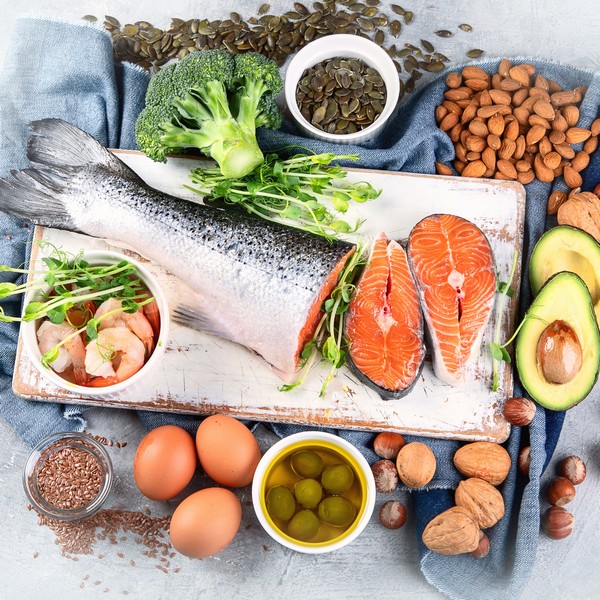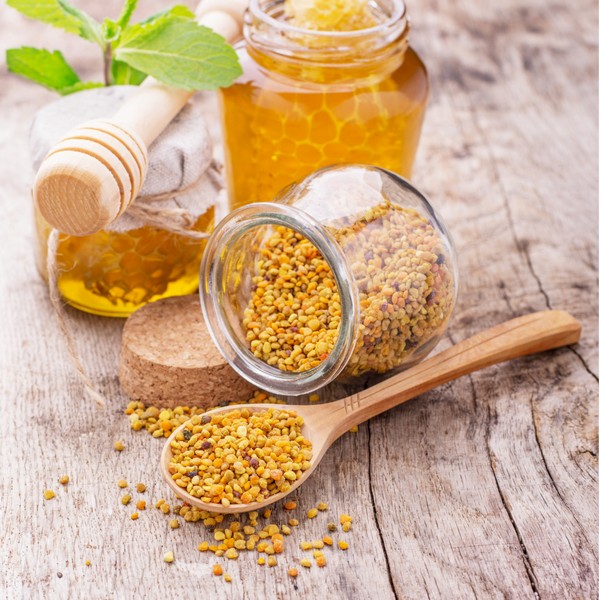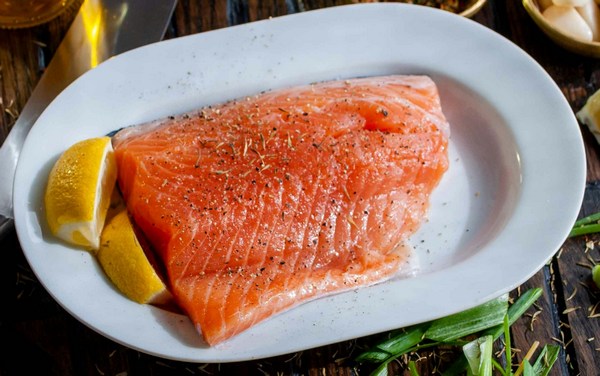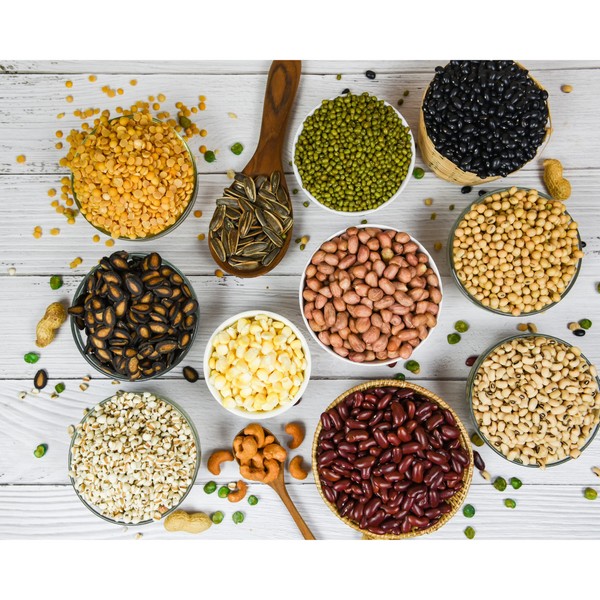Struggling to find the right oil for your health and kitchen? Red palm oil is packed with nutrients that might just be what you need. This post will guide you through its benefits, how it can boost your health, and tips on adding it to your diet.
Table of Contents
Key Takeaways
- Red palm oil is rich in vitamin E and carotenoids.
- It can benefit your heart, skin, and brain.
- Eating red palm oil boosts vitamin A levels and strengthens eyes and immune system.
- Choose unrefined red palm oil for more nutrients.
- Red palm oil can be used on skin, hair, and in homemade soaps or lip balms.
- Consider the environmental and social impact of palm oil production.
- Support products that prioritize fair work and environmental care.
Nutritional Information of Red Palm Oil

Red palm oil is rich in vitamin E and carotenoids, making it a powerhouse of antioxidants. Its composition includes healthy fats that can be beneficial for heart health and overall well-being.
Composition of red palm oil
Diving into the colorful world of red palm oil, we uncover a palette of nutrients that could give the most vibrant sunset a run for its money. Here’s a peek into what makes this oil a standout in the kitchen and possibly your new health buddy.
| Nutrient | Content | Benefit |
|---|---|---|
| Vitamin E (Tocopherols & Tocotrienols) | High | Antioxidant, supports brain and heart health |
| Carotenoids (Beta-carotene & Alpha-carotene) | Extremely High | Improves Vitamin A status, good for vision and immune function |
| Saturated Fat | Moderate | Energy source, but watch the intake! |
| Monounsaturated Fat | Decent amount | Supports heart health, keeps cholesterol levels in check |
| Polyunsaturated Fat | Lower amounts | Essential fatty acids for body functions |
| Antioxidants | Abundant | Protects against cellular damage |
| Phenolic compounds | Present | Contributes to antioxidant activity |
So, we’ve got a treasure trove of goodies packed in this vibrant oil. Vitamins? Check. Brain-boosting compounds? Double check. But, remember folks – moderation is key. It’s like they say, “Too much of a good thing…” Well, you get the idea. And, let’s not forget the controversy surrounding palm oil. It’s a conversation for another day, but always something to keep in mind when making those pantry picks.
Vitamin E and carotenoid content
Red palm oil is like a superhero for your body because it’s packed with vitamin E and carotenoids. These nutrients are super important for keeping your skin looking good and protecting it from the sun.
Potential Health Benefits of Red Palm Oil

Red palm oil is packed with antioxidants that can help protect your cells from damage. It may also support heart and brain health, and even boost your vitamin A levels.
Antioxidant properties
- Red palm oil contains antioxidants that act as a shield for our bodies.
- The antioxidants in red palm oil help protect our cells from damage caused by free radicals.
- It can be compared to having internal bodyguards that keep our cells safe.
Brain health

- Red palm oil is rich in vitamin E, which can positively impact brain health.
- Vitamin E in red palm oil is known to enhance brain function and cognitive abilities.
Improved vitamin A status
Red palm oil can dramatically improve vitamin A status, with a high concentration of carotenoids—15 times more than carrots. These carotenoids are converted into vitamin A in the body, essential for vision and immune function.
Red palm oil is particularly valuable in regions where vitamin A deficiency is common, as it offers a natural and potent source of this crucial nutrient.
It’s important to acknowledge the beneficial effects red palm oil has on health due to its exceptional vitamin A content. Plus, its impact reaches beyond just addressing deficiencies, delivering overall wellness benefits that make it a worthy addition to one’s diet.
Controversies surrounding palm oil production
Amid the concerns about saturated fat content, controversies surrounding palm oil production have gained widespread attention. One key issue is the environmental impact of palm oil plantations, including deforestation and habitat destruction for various species.
These activities can lead to significant biodiversity loss in regions where palm oil is produced, impacting indigenous communities and wildlife habitats. Furthermore, there are labor-related controversies such as exploitative working conditions and human rights abuses within the palm oil industry.
In addition to environmental and social impacts, another controversy revolves around the health implications of consuming products containing palm oil. Some studies suggest a link between excessive consumption of palm oil and adverse effects on cardiovascular health due to its high saturated fat content.
Incorporating Red Palm Oil Into Your Diet
When using red palm oil, choose the unrefined type for more nutrients and use it in moderation as part of a balanced diet. To find out more about the benefits and risks of using red palm oil, keep reading!
Choosing unrefined over refined
When choosing red palm oil, opt for unrefined versions instead of refined ones. Unrefined red palm oil retains more of its natural nutrients and antioxidants, making it a healthier choice.
The refining process can strip away some of these beneficial compounds, reducing the potential health benefits. Look for cold-pressed or virgin varieties to ensure you’re getting the most out of red palm oil’s nutritional properties.
By selecting unrefined red palm oil, you can maximize its positive impact on heart health, antioxidant protection, and vitamin A content while supporting sustainable agriculture practices.
Recommended serving sizes
Red palm oil can be a healthy addition to your diet, but it’s important to use it in moderation. A serving size of red palm oil is about 1 tablespoon, which provides around 120 calories and 14 grams of fat.
When cooking with red palm oil, consider using it as a flavorful drizzle for salads or as an ingredient in homemade dressings. Including small amounts in your cooking can add a delicious twist to your meals while incorporating the potential health benefits.
It’s essential to understand the right amount of red palm oil to use in your daily meals to gain its benefits without overdoing the saturated fats. Moderation is key when adding this nutrient-rich oil into your diet for improved overall well-being.
Alternative uses for red palm oil
Red palm oil isn’t just for cooking; it has other uses too.
Moisturizing: Red palm oil contains vitamin E and antioxidants, making it great for skin and hair moisturization. UV Protection: Apply red palm oil to your skin as a natural way to protect against sun damage, thanks to its carotenoid content. Homemade Soaps: Use red palm oil in DIY soap recipes for its moisturizing and antioxidant properties. Salad Dressings: Create flavorful salad dressings using red palm oil, benefiting from its rich nutrient content. Baking: Incorporate red palm oil into baked goods for a boost of antioxidants and a unique flavor profile. Hair Treatment: Apply a small amount of red palm oil to dry or damaged hair as an intensive conditioning treatment. Natural Lip Balm: Mix red palm oil with beeswax and essential oils to create a nourishing lip balm at home. Smoothies: Add a teaspoon of red palm oil to smoothies for an extra dose of antioxidants and healthy fats without altering the taste.
Conclusion
Incorporating red palm oil into your diet can offer various health benefits. The rich antioxidant and vitamin E content make it a valuable addition for heart and brain health. However, it’s essential to be mindful of its saturated fat content and potential risks.
By understanding how to use red palm oil wisely, you can maximize its advantages while minimizing any drawbacks in your journey towards better health.
FAQs
1. What are the health benefits of red palm oil?
Red palm oil provides essential nutrients, like vitamin E and beta-carotene, which support heart health and boost immunity.
2. How can I incorporate red palm oil into my diet?
You can use red palm oil for cooking or as a flavorful addition to salads, soups, or smoothies.
3. Is red palm oil better than other cooking oils?
Red palm oil offers unique health benefits due to its high antioxidant content and nutrient profile that sets it apart from other cooking oils.
4. Can I use red palm oil for skincare?
Yes, you can use red palm oil as a natural moisturizer for your skin and hair due to its nourishing properties.
5. Where can I buy red palm oil?
You can find red palm oil in most grocery stores or purchase it online from various retailers.
Research Choo YM, et al. Red palm oil supplementation reduces cholesterol in adults: A systematic review and meta-analysis of randomized controlled trials. Clin Nutr ESPEN. 2020;35:1-8. doi: 10.1016/j.clnesp.2020.02.005 Abd Kadir K, et al. Effects of red palm oil on cardiovascular risk factors and metabolic syndrome: A systematic review and meta-analysis of randomized controlled trials. Nutrients. 2020;12(8):2353. doi: 10.3390/nu12082353 Oguntibeju OO. The biochemical, physiological and therapeutic roles of antioxidants in the prevention and management of human diseases: Overview. Indian J Clin Biochem. 2020;35(2):115-126. doi: 10.1007/s12291-019-00868-9 Van Brussel L, et al. Palm oil and heart health: A case of nutrient balance? Curr Atheroscler Rep. 2019;21(2):6. doi: 10.1007/s11883-019-0771-x Akinloye OA, et al. Red palm oil: Nutritional, physiological and therapeutic roles in improving human health. Syst Rev Pharm. 2019;10(2):55-64. doi: 10.5530/srp.2019.2.12 Odeyemi IB, et al. The role of dietary oil and fat in health: A literature review. Int J Food Sci Nutr. 2018;69(6):679-689. doi: 10.1080/09637486.2017.1415638 Nwadike PU, et al. Red palm oil: Nutritional, physiological and therapeutic roles in improving human well-being. J Med Food. 2016;19(11):1032-1040. doi: 10.1089/jmf.2016.0066 Ng XW, et al. Chemical composition and nutritional properties of red palm oil: A review. Palm Oil Develop. 2016;64:16-25. Ali F, et al. Red palm oil-based dietary supplementation reduces malarial parasitemia and merozoite surface protein-1 expression in mice. Malaria J. 2015;14(1):1-9. doi: 10.1186/s12936-015-0979-2 Edem DO. Palm oil: Biochemical, physiological, and nutritional aspects. In: Handbook of Functional Lipids. Boca Raton, FL: CRC Press; 2016:177-202. doi: 10.1201/b15413-8 Nishida C, et al. The joint WHO/FAO expert consultation on diet, nutrition and the prevention of chronic diseases: Process, product and policy implications. Public Health Nutr. 2004;7(1a):245-250. doi: 10.1079/phn2003582 Sundram K, et al. Health effects of palm oil. Nutr Rev. 2003;61(10):S66-S79. doi: 10.1301/nr.2003.oct.S66-S79 Ng TK, et al. Effects of consumption of oleic acid-rich oils on the risk of coronary artery disease: A systematic review and meta-analysis of randomized controlled trials. Nutrients. 2018;10(9):1234. doi: 10.3390/nu10091234 Gandy G, et al. Red palm oil consumption and osteoporosis: Translating evidence from traditional communities to modern populations. Front Endocrinol. 2019;10:332. doi: 10.3389/fendo.2019.00332 Efere M, et al. The role of red palm oil on biodiversity conservation in Nigeria. J Biol Agric Healthc. 2015;5(24):10-16. Abeysekera WKSS, et al. Potential anti-inflammatory effects of red palm oil in reducing inflammation-related cardiovascular diseases. In: The Role of Plant Based Diets in Disease Prevention and Management. New Delhi, India: Springer; 2020:319-336. doi: 10.1007/978-3-030-30436-9_19 Lee JH, et al. Comparative effects of dietary red palm oil and sunflower oil on the lipid profiles and antioxidant status of rats. Food Sci Biotechnol. 2012;21(5):1349-1354.
What You Need to Know About Salt and Your Health
Table of ContentsThe Health Benefits of Unrefined Sea SaltElectrolyte BalanceMineral ContentImproved HydrationBoosted Energy LevelsImmune SupportImproved DigestionBalanced pH LevelsReduced Water RetentionHeart Health SupportStronger Bones and TeethEnhanced…
Silica: for Healthier Skin, Hair, and Nails
Creatine Myths Debunked: Separating Fact from Fiction
Key Takeaways Common myths about creatine, such as it causing kidney damage, weight gain, and being a steroid, are widespread but unsupported by scientific evidence….
Allulose: The Best Sugar Alternative
Trimethylglycine TMG: Betaine Anhydrous Explained
Tallow: Benefits, Uses, and Nutrition
Key Takeaways: Tallow is a nutrient-rich animal fat with many practical uses. It contains valuable vitamins such as A, D, E, and K. Tallow is…
L-Carnitine: Benefits, Dosage, and Side Effects
Key Takeaways L-Carnitine supports fat metabolism and energy production. Benefits include enhanced exercise performance and improved heart health. Proper dosing minimizes potential side effects. Understanding…
Zinc Supplements: Risks and Dangers
Key Takeaways Zinc supports immunity, wound healing, and cell growth. High zinc supplement doses can cause health problems. Always consult a healthcare provider before taking…
Potassium: Benefits & Sources
Key Takeaways Potassium is essential for regulating fluid balance, nerve signals, and muscle function. It supports heart health and helps maintain proper blood pressure. Adequate…
L-Glutamine and Gut Health: Benefits and Side Effects
Key Takeaways L-Glutamine is essential for gut health. Benefits include improved digestion and reduced inflammation. Potential side effects are rare but can occur in high…
Increase GLP-1 Agonists Naturally
Key Takeaways: GLP-1 agonists regulate appetite, insulin production, and blood sugar levels. Regular exercise and quality sleep maintain optimal GLP-1 levels. High-protein, low-carb diets effectively…
How Cod Liver Oil Can Transform Your Health and Wellness
Cod liver oil has been used for centuries as a natural remedy for various health conditions. Packed with essential nutrients and fatty acids, cod liver…
TUDCA Benefits for Health
Key Takeaways TUDCA promotes liver health, aiding cell protection and repair. Enhances digestion by improving bile flow and supporting gut health. May protect brain health…
Magnesium: Better Sleep, Stress Relief and More
Whole Food Vitamin C Complex: Expert Tips for Health
Key Highlights Whole food vitamin C complex is essential for a strong immune system and overall health. Unlike synthetic ascorbic acid, whole food vitamin C…
How Stabilized Rice Bran Supports Digestive & Heart Health
Key Takeaways – Stabilized rice bran is a nutrient-rich source of vitamins, minerals, and antioxidants. – The stabilization process prevents rancidity, making it a long-lasting…
Iron Overload: Symptoms & Prevention Tips
Key Takeaways: Iron overload happens when the body absorbs excessive iron, which can damage organs. Common symptoms include fatigue, joint pain, and skin changes. Early…
CoQ10: What Is It and Why Is It Important?
Key Takeaways CoQ10 (Coenzyme Q10) is an antioxidant produced by the body, essential for energy production in cells. Levels of CoQ10 naturally decrease with age…
Postbiotics: What They Are and Why They Are Important
Key Takeaways Postbiotics 101: They’re beneficial by-products from probiotics that consume prebiotics Boosts Immunity: Postbiotics sharpen your immune system, helping fight off pathogens and reducing…
Protein: You probably need more
Key Takeaways Protein is needed for building and repairing body tissues. It supports muscle growth, immune function, and hormone production. Bioavailable sources of protein include…
Keto Diet 101: A Complete Beginner’s Guide
Key Highlights The ketogenic diet is a low-carb, high-fat diet that can lead to weight loss and has many health benefits. By reducing carbohydrate intake…
Eggs: A Comprehensive Guide
Key Highlights Eggs are a nutritional powerhouse, containing all the essential vitamins and minerals needed for overall health. Vital role in a balanced diet, providing…
Carnivore Diet: Benefits, Risks, Food List & More
Key Takeaways The carnivore diet is a keto diet that only allows for animal-based foods, and has potential health benefits. Tips for success include hydrating,…
Liver: 5 Surprising Benefits Backed by Science
Hold on! Don’t run away! You need to read this. Liver is a highly nutritious organ meat that is often overlooked in modern diets. Packed…
Vitamin E Complex
Key Takeaways Vitamin E is a powerful antioxidant that protects cells from oxidative damage, reducing the risk of chronic diseases. The vitamin E complex includes…
6 Best Natural Ways to Manage Your Blood Sugar: A Quick & Easy Guide
1. Intermittent fasting2. Exercise3. Dietary fiber4. Sleep5. Weight loss6. SupplementationBioclinic NaturalsPGX BiotiquestSugar Shift Every time you eat it, it’s plotting something sinister. Sugar isn’t as…
Conjugated Linoleic Acid (CLA): Benefits & Sources
Key Takeaways CLA is a type of fatty acid found primarily in animal products like beef and dairy. Known for potential benefits such as weight…
Benefits of Nutritional Yeast
Key Takeaways Nutritional yeast is a rich source of vitamins and minerals. It supports immune function and promotes skin health. Its cheesy flavor makes it…
Berberine Has 11 More Incredible Benefits Than You Thought
Berberine is a compound found in several plants that has been used for centuries in traditional Chinese medicine and Ayurveda. It has recently gained popularity…
Calcium Supplements: What You Need to Know
Key Takeaways Calcium supplements have been linked to heart disease and kidney stones. Excess calcium from supplements can lead to imbalances and health issues. Natural…
Boron: Benefits of a Lesser-Known Mineral
Key Takeaways Boron is a trace mineral with significant health benefits. It supports brain function, bone health, and hormonal balance. Understanding boron’s role can improve…
Copper: Little-Known Health Benefits
Key Takeaways Copper is an essential trace mineral with benefits, including ceruloplasmin production, energy production and antioxidant properties. Copper is critical for brain health by…
8 Key Signs of Nutrient Deficiency
Key Takeaways Magnesium: A multitasker that aids in over 300 biochemical reactions in the body. Copper: Supports neurological function, cardiovascular and immune system health, iron…
11 Electrifying Health Benefits of Trace Minerals
What are Trace Minerals?The Major Roles of Trace MineralsSources of Trace MineralsDeficiencies in Trace MineralsThe Impact of Trace Minerals on Specific Health ConditionsFrequently Asked Questions…
Healthy Fat: is Butter Better?
Key Takeaways Saturated fats, like those found in butter, may not be as harmful as once thought and can be part of a healthy diet….
Medium Chain Triglycerides (MCTs): Uncovering 5 Health Benefits
This potent, natural source of energy has gained considerable attention in recent years for its impressive array of benefits. MCT oil is a versatile addition…
How Collagen Supports Healthy Skin, Joints, and More
Key Takeaways Collagen is the most abundant protein in the body, supporting the structure of skin, bones, and connective tissues. It helps maintain skin elasticity,…
Spirulina: Health Benefits and Uses
Key Takeaways Spirulina boosts immune function with its high nutrient content and antioxidant properties. Rich in proteins and essential vitamins, enhances overall nutrition. Helps reduce…
Benefits of Sea Moss Explained
Key Takeaways Rich in Nutrients: Sea moss is packed with essential vitamins, minerals, and antioxidants, supporting overall health and wellness. Supports Immune Function: Its high…
Do This! The Ultimate Guide to Fasting Safely and Effectively
In our increasingly busy lives, finding time to take care of our bodies can often take a backseat. One method that has gained attention recently…
Cholesterol Misconceptions: Separating Fact from Fiction
Key Takeaways: High inflammation and blood pressure are major risk factors for heart disease. Cholesterol is vital for hormone production, cell membrane structure, and digestion,…
Natural Treatment for Irritable Bowel Syndrome (IBS): Effective Remedies Explored
Understanding IBSSymptoms of IBSRole of Diet in IBSNatural Remedies for IBSSupplements for IBSRole of Probiotics in IBSFrequently Asked Questions Understanding IBS Irritable Bowel Syndrome (IBS)…
The Impact of Ultra-Processed Foods on Your Wellbeing
Every bite we take is a step toward either wellness or illness. In our fast-paced world, ultra-processed foods have become a staple, silently shaping our…
Taurine: The Mighty Amino Acid for Optimal Health
Key Takeaways Taurine supports heart health, regulates blood pressure, and reduces oxidative stress. Essential for muscle function, brain health, and cognitive function. Aids in insulin…
13 Most Dangerous Foods Revealed
Key Highlights Fugu, or pufferfish, is one of the most poisonous foods in the world, with its organs containing a neurotoxin that can paralyze motor…
ALA vs. DHA & EPA Omega-3: Why Source Matters
Key Takeaways ALA (Alpha-Linolenic Acid) is found in flaxseeds, chia seeds, and walnuts, but converts poorly to DHA and EPA. DHA and EPA are critical…
Actual Superfoods: Real Foods You Should Be Eating
Key Takeaways Superfoods are nutrient-dense foods, offering essential vitamins, minerals, and fats. Prioritize high-quality sources for optimal nutrition. They support overall health, boost energy, and…
Vitamin A (Retinol): Essential Nutrient for Health
Key Takeaways: Natural Vitamin A, also known as Retinol, is crucial for vision, immune function, and skin health. Retinol is essential for healthy vision, particularly…
Is Eating Sugar Really That Bad For Your Health?
Should You Really Be Concerned? In short, YES! Thank you, that’s all folks, and do have a good evening. Seriously though, extensive research has established…
5-HTP: Natural Ways to Boost Serotonin and Improve Mood
Key Takeaways: 5-HTP is a natural compound that helps boost serotonin levels in the brain. It can support mood regulation, sleep improvement, and stress reduction….
Bee Pollen: Nature’s Secret Superfood
Key Takeaways Bee pollen is packed with essential nutrients and offers numerous health benefits. It supports immune function, boosts energy, and promotes overall well-being. Adding…
5 Major Benefits of Omega-3 Fatty Acids
Key Takeaways Omega-3 fatty acids support heart health by reducing triglycerides and lowering blood pressure. They play an important role in brain function and development,…
Grains & Legumes Secretly Harming Your Health? Find Out Now!
Key Takeaways: – Grains and legumes contain antinutrients like lectins and phytic acid, which can interfere with nutrient absorption. – These foods may trigger digestive…


